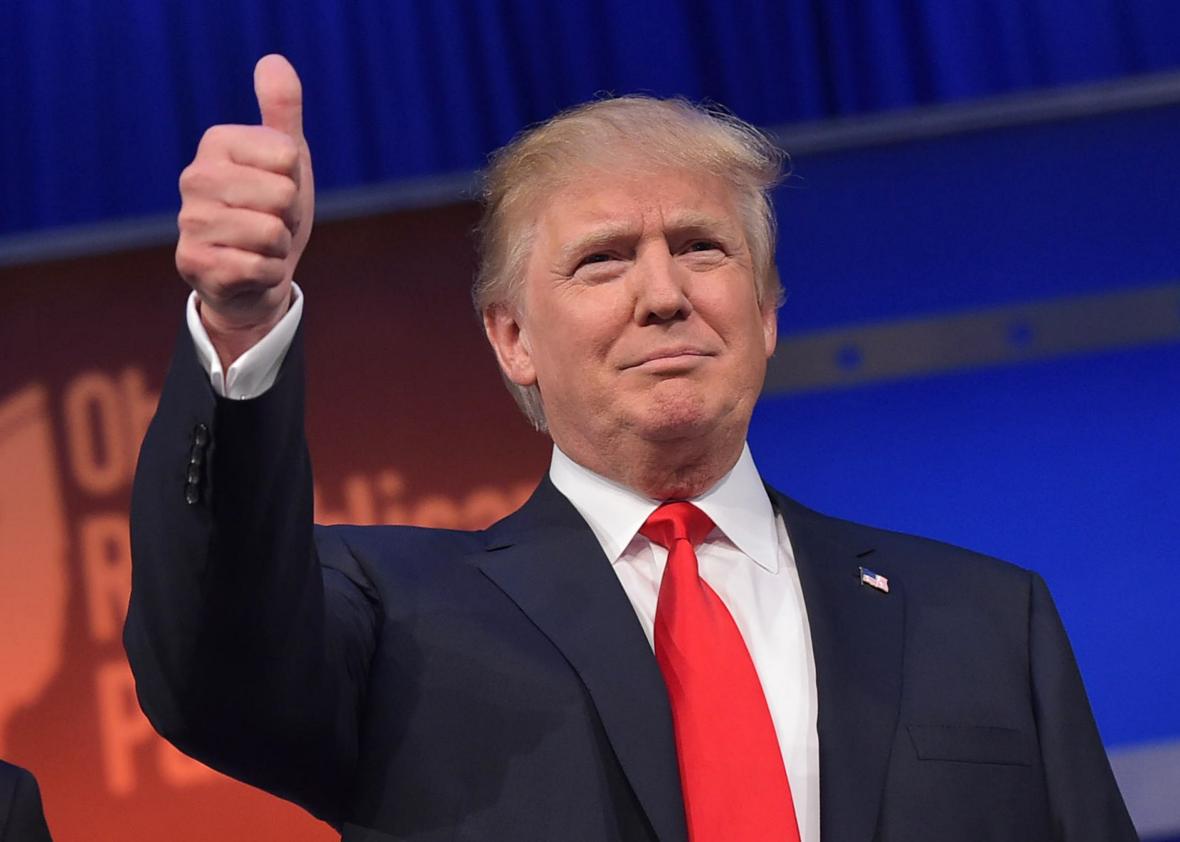
In one of its recent issues, The New Yorker’s extraordinary satire section suggested the possible genesis of Donald Trump’s presidential campaign. Its author, screenwriter Douglas McGrath, imagines that Trump is in need of media attention following his TV show’s recent decline in popularity: “Before they give me the axe, I announce that I’m running for president and boom! Winner again.” Trump thus announced his hypothetical plan. To get enough attention, the tycoon says something crazy enough to unleash a publicity storm (“Mexicans are rapists …”). Those weeks of renewed attention would give enough momentum to strengthen his famous brand, and that was that.
The problem, McGrath writes with a great sense of humor, is that it turned out that Trump’s fiery rhetoric had an unusual success. In the text, Trump and his advisers began to panic: The actual intention was not to turn the tycoon into a presidential candidate. All they wanted was a few weeks of good publicity. McGrath imagines Trump uttering increasingly more horrible and crazy things in an attempt to escape the predicament he’s in. But again, the effect is the opposite: Not only do people not abandon him, their numbers continue to rise. “We have a problem,” Trump says. “I may actually win.”
I remembered McGrath’s text when, just a few days before the formal start of the primaries in the United States, I heard Trump claim, “I could stand in the middle of 5th Avenue and shoot somebody and I wouldn’t lose voters.” Where does a phrase like that come from? Who would imagine saying such a thing? One possibility (not to be easily dismissed) is that Trump is undergoing a crisis similar to the one suggested by McGrath: This man, who is a new version of the donkey who managed to play the flute, never imagined the success that his racist rhetoric would have, and now doesn’t know how to quit without losing more of what he has gained. It could very well be so. The other possibility is that Trump is very much right and that this is his year: the consolidation of a megalomaniac project of titanic proportions.
With exactly one week from the Iowa caucuses, Trump is the absolute leader in polls in all those states that will decide the Republican presidential candidate. He has a 15 point lead in national polls. In Iowa, he’s ahead of Ted Cruz by 5 points; in New Hampshire, by 19; South Carolina, by 16 points; in Florida, by almost 20. It’s hard to imagine a stronger advantage, not only because of Trump’s very strength, but also because of the weakness of his rivals. Neither Ted Cruz (a terrifying person) nor Marco Rubio (a Hispanic who has decided to go against a Hispanic agenda) have been able to take off. If things keep going at this rate, and Trump is able to translate such support into votes at the polls, there is no way that, state after state, he will not win, thus winning the candidacy — unless the GOP makes use of a very unwise and undemocratic maneuver at the party convention.
How to stop Trump? In the United States, there are reports that the Republican Party has begun to resign itself. Some suggest that important advisers are starting to plan the way in which to soften Trump’s image, and that they are even thinking about potential vice presidential candidates. But not everyone is keeping quiet. The influential conservative magazine, The National Review, has launched a special issue that is aimed at convincing receptive voters about all of Trump’s defects. This is no small thing, especially coming from a publication once praised by Sarah Palin.
Nonetheless, the reality is that the only way to stop Trump is by convincing most other candidates to withdraw from the race. At this point, there are still 10 Republican candidates. At least seven of them have no chance of winning the nomination. Their presence benefits the leading, racist candidate because it reduces the chances of exposing — for instance, in debates — Trump’s ignorance. It’s not the same thing to hold a three-hour debate against seven people on stage than against just two. Maybe, just maybe, if Trump were forced to speak in a serious and thorough manner, with Cruz and Rubio by his side, he would be exposed as what he really is: a virtual ignoramus who has an impressive populist instinct and a cynicism that is just as impressive. Until that happens, Mr. Trump will remain just as smug.
We have a problem.

Leave a Reply
You must be logged in to post a comment.